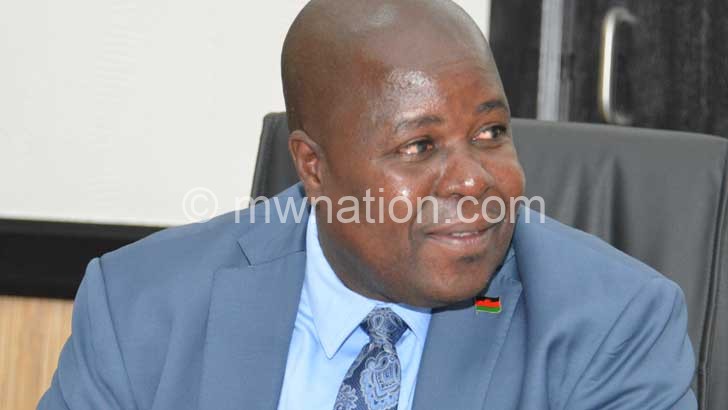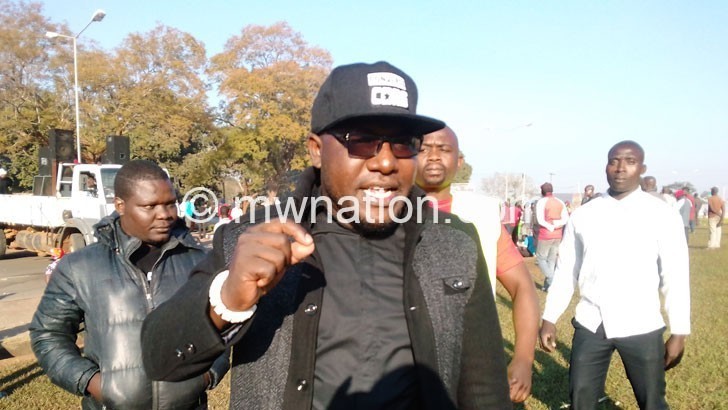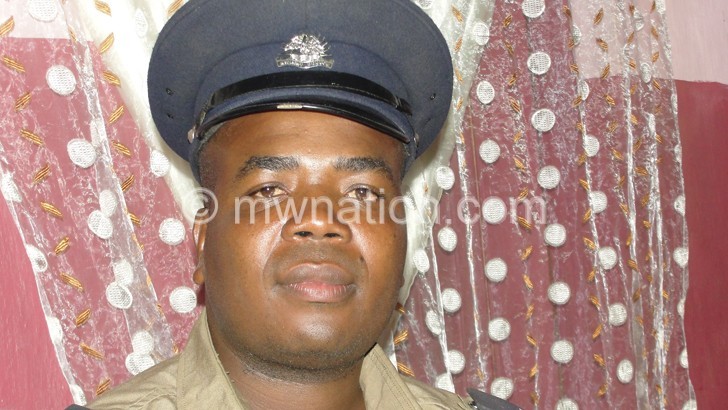Sumbuleta’s case puts jury on trial
The Judiciary has admitted that hearing cases by jury is expensive and has consequently adjourned sine die a sexual harassment case of former Malawi Broadcasting Corporation (MBC) director general Aubrey Sumbuleta, which needs about K29 million.
Meanwhile, government has initiated a process to repeal Section 294(1) of the Criminal Procedure and Evidence Code (Cpec) which states that all trials in the High Court must be decided by a jury subject to the relevant exceptions gazetted by the minister under Section 294(2) of the Cpec.

In a telephone interview on Wednesday, Supreme Court of Appeal and the High Court of Malawi registrar Kondwani Banda confirmed that Sumbuleta’s trial will proceed depending on when or whether Treasury will release the funds.
Sumbuleta was charged with abuse of office under Section 95 (1) of the Penal Code, indecent assault contrary to Section 137 (1) of the Penal Code and sexual harassment contrary to Section 6 of the Gender Equality Act.
Said Banda: “According to the finances the Judiciary receives and what they have in the budget, … we will need to consult and write the Secretary to Treasury. But even if we ask Treasury, you know one thing for sure is that once the budget has been passed into law, the ST cannot just give extra money.”
A confidential memorandum from the office of the Solicitor General addressed to the Director of Public Prosecutions (DPP) Masauko Chamkakala urgently appeals to the DPP to facilitate the amendment of Section 294(1) of Cpec.
Banda said there is a cost attached in the identification and orientation of a jury, including accommodation and transport for jurors and the longer the trial the more funds are needed.
He observed that the last time the counrty had a jury trial was was before 1994.
Reads the memo dated July 4 2023: “The High Court, in the matter of Republic vs Aubrey Sumbuleta Criminal Case Number 4 of 2022 Principal Registry delivered a ruling on 22nd June 2023 holding that the matter be heard by jury. According to the court’s calculations, the total estimated cost is pegged at K29 209 760.00…
“The court then adjourned the matter sine die due to unavailability of funds and will only proceed with trial once these funds are sourced from Treasury.”
When contacted for comment on the proposed amendment, Chamkakala said his office is not in a position to say anything.
He said: “All I can say is that I am not able to comment anything on this matter at this time.”
But a senior official in the Ministry of Justice and Constitutional Affairs, speaking on condition of anonymity, said the repeal is long overdue as the law in its current form is not up-to-date with the realities of modern times.
He added that the law must be examined with candidness, as in this time and era a minister of Justice should not be making regulations regarding criminal prosecution.
He said: “Section 294(2) empowers the minister of Justice to give directions on how cases should be tried, but be mindful that the Judiciary is an independent arm of government and the minister is only supposed to bring Bills to Parliament as the Executive. But that provision seems to assume that the Judiciary and the Ministry are one and the same. That provision was relevant a long time ago when the Judiciary was a department under the Ministry of Justice.”
Weighing in on the issue, a legal expert Justin Dzonzi said the amendment is long overdue, arguing that in the post-multiparty Malawi, the only instances where jury trials were heard was in murder cases.
Dzonzi pointed out that the reality on the ground is that the Judiciary is already implementing a different version of adjudication process from the one envisaged in Section 294 and that the easiest is to qualify the current practice.
He said Dzonzi: “Jurors tend to deliver common sense judgements which run the risk of convicting innocent people. People are safer in the hands of trained judicial officers.”
Commenting on the development, Sumbuleta’s lawyer David Kanyenda said jury trials have been part of the country’s criminal justice system since time immemorial arguing that even former president Hastings Kamuzu Banda amd former Malawi Congress Party president John Tembo and others were tried by a jury.
Said Kanyenda: “The people of Malawi through their elected representatives in Parliament already decided that we should have a jury system for criminal trials in the High Court. The Malawian taxpayers will provide the requisite funding for our client’s trial by jury.”
He said the defence team is ready for trial, adding that the allocation of dates of hearing is an internal matter for the Judiciary and once trial dates are fixed they will attend the proceedings.
On February 15 2023, when the court convened to begin full trial, Sumbuleta asked the court, through his lawyer, to have the case heard by a jury.
This was after the same court on December 6 2022 dismissed Sumbuleta’s preliminary objection that the case be referred to the Chief Justice for certification as a constitutional matter and that it be permanently stayed.
In her ruling in June, High Court Judge Ruth Chinangwa observed that the matter has to be heard before a jury on the basis that Sumbuleta’s offences are not exempted from a trial without a jury.
The judge also highlighted that the law on trial with or without a jury be revisited since some serious crimes are heard by a single judge.
Reads part of the ruling: “It is interesting to note that serious crimes such as murder, offences under Money Laundering, Proceeds of Serious Crimes and Terrorist Financing and Financial Crimes Act have been left to a single Judge in the High Court to determine without the assistance of the jury.
“This court is of the view that the law on trial with or without a jury should be revisited once again.”





